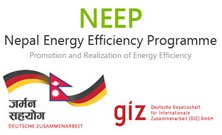- The evolution of compressor technology has progressed from reciprocating to rotary, to twin rotary, to scroll, to screw, to centrifugal machines, in terms of efficiency. Need-based replacement for renovation and modernization for energy efficiency is a good opportunity.
- Select most efficient compressors with lowest I kW/TR (integrated kW/TR accounting for part load performance).
- Rooftop coating adoption, with reflective materials and under-deck insulation, will reduce U factor (heat transfer coefficient, which should be as low as possible) and heat ingress.
- Maintain optimum wall area (70%) to window area (30%) ratio for minimizing solar heat gain.
- Adopt energy-efficient low-wattage lighting systems to reduce cooling load.
- Optimize thermostat settings for energy economy.
- Adopt false ceilings in air-conditioned spaces to reduce the area to be conditioned.
- Adopt good filter maintenance practices for better AHU performance.
- Regular cooling coil cleaning and ultraviolet light application will reduce bacterial effects.
- Adopt energy-efficient water-cooled condensers in place of air-cooled condensers.
- Adopt energy-efficient AHU fans.
- Adopt heat recovery wheels in AHUs.
- Adopt grooved copper tubes for better heat exchange.
- Adopt super slit fins for better heat exchange.
- Adopt heat recovery condensers.
- Adopt variable frequency drives for pumps and fans for power savings.
- Adopt cooling towers with 5ºF approach, in place of conventional 7ºF approach units, to optimize condenser performance.
- Use soft water for condensers to avoid condenser scaling effects.
- Use FRP blades in cooling tower fans, for power savings.
- Adopt two-way valves for AHUs, to achieve better operational control.
- Adopt intelligent building automation and controls.
- Adopt chilled water storage and ice bank storage, as applicable, for peak demand management and energy savings.
- Adopt automatic PF controllers for PF improvement.
- Adopt VAR systems, especially where waste heat steam is available at low cost, as an eco-friendly and cost-effective alternative.
- Adopt eco-friendly refrigerants.



